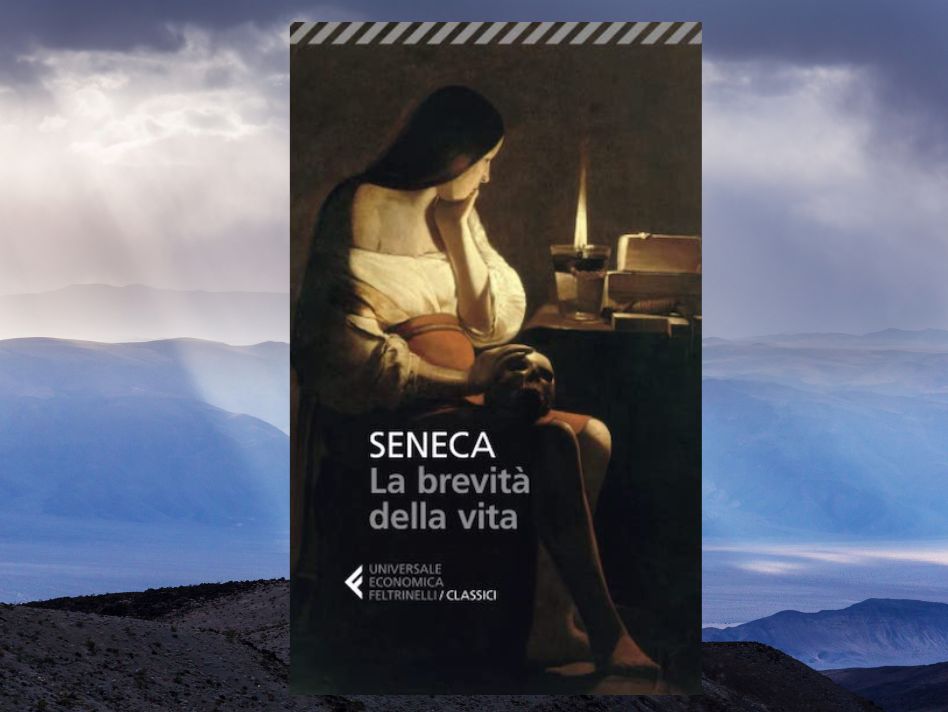
De brevitate vitae di Seneca temi ed insegnamenti principali
" De Brevitate Vitae " ( Latin for "On the Shortness of Life"), more commonly known as " Gaudeamus igitur " ("So Let Us Rejoice") or just "Gaudeamus", is a popular academic commercium song in many European countries, mainly sung or performed at university graduation ceremonies.
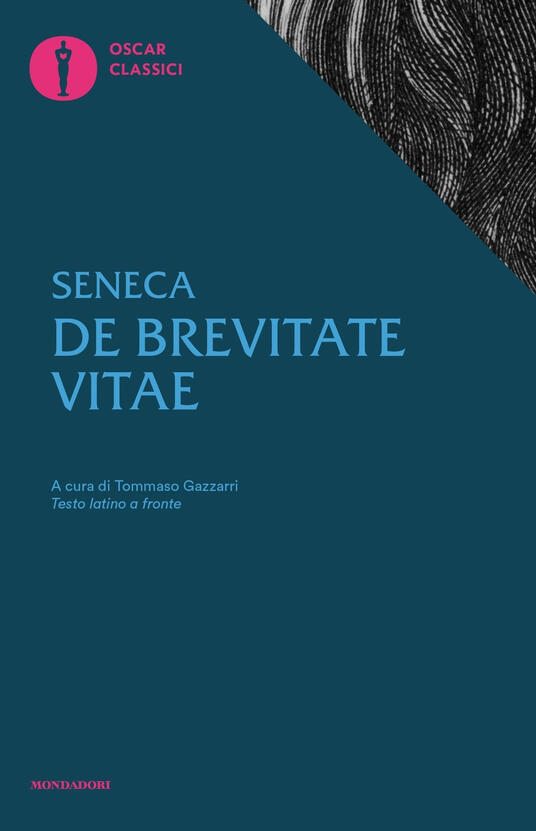
De brevitate vitae. Testo latino fronte Lucio Anneo Seneca Libro Mondadori Oscar
L. Annaeus Seneca. Moral Essays: volume 2. John W. Basore. London and New York. Heinemann. 1932. The National Endowment for the Humanities provided support for entering this text. This work is licensed under a Creative Commons Attribution-ShareAlike 3.0 United States License . An XML version of this text is available for download, with the.

LA BREVITÀ DELLA VITA DE BREVITATE VITAE di Seneca riassunto, analisi e spiegazione YouTube
De Brevitate Vitae (English: On the Shortness of Life) is a moral essay written by Seneca the Younger, a Roman Stoic philosopher, sometime around the year 49 AD, to his father-in-law Paulinus. The philosopher brings up many Stoic principles on the nature of time, namely that people waste much of it in meaningless pursuits.

De brevitate vitae / Von der Kürze des Lebens by Seneca
De Brevitate Vitae (this document) Search for all inflected forms (search for "amo" returns "amo", "amas", "amat", etc.) Search for exact forms only hide Stable Identifiers Citation URI: http://data.perseus.org/citations/urn:cts:latinLit:stoa0255.stoa004.perseus-lat1:10.1
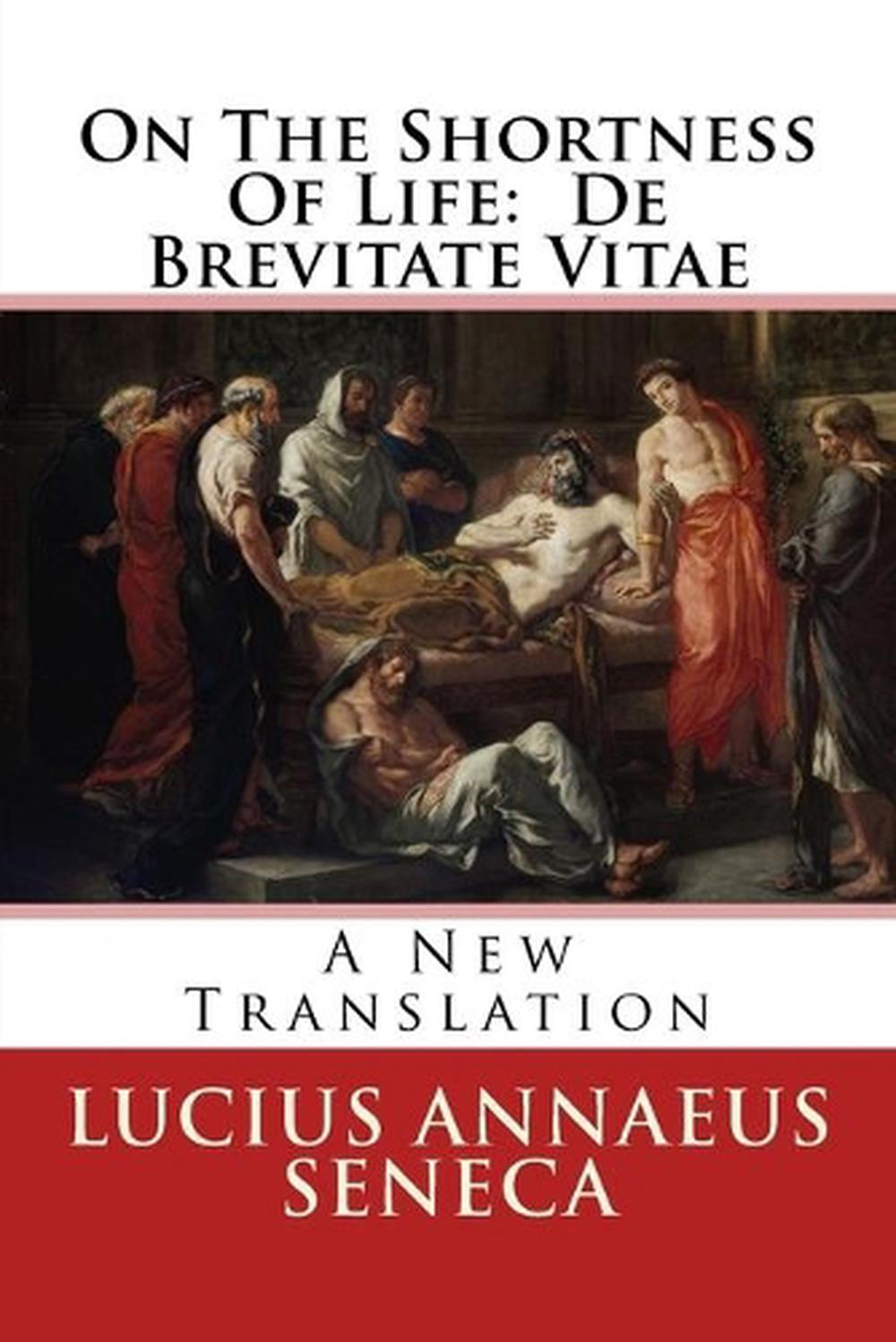
On the Shortness of Life de Brevitate Vitae A New Translation by Lucius Annaeu 9781508820826
De brevitate vitae. English : : : Note: Link: HTML at EEBO TCP No stable link: request that we add this book to our curated collection, which has stable links. Subject: Subject: Longevity -- Poetry Other copies: Look for editions of this book at your library, or elsewhere. Help with reading books -- Report a bad link -- Suggest a new listing

Buy De Brevitate Vitae Lucius Annaeus Seneca (Latin Edition) Paperback May 21, 2021 Online
De Brevitate Vitae —"On the Shortness of Life". Translated by John W. Basore, Loeb Classical Library London: William Heinemann, 1932 TO PAULINUS ON THE SHORTNESS OF LIFE Contents Chapter I Chapter II Chapter III Chapter IV Chapter V Chapter VI Chapter VII Chapter VIII Chapter IX Chapter X Chapter XI Chapter XII Chapter XIII Chapter XIV Chapter XV

De Brevitate Vitae Lucius Annaeus Seneca by Lucius Annaeus Seneca Goodreads
philosophy from early youth (i.e. total abstention from public service) or. upon retirement from a career isfully in accordance with Stoic principles. ( . - ), isconventionally dated to. . or soon afterwardsand read asa. philosophical justification of S.'s own. de facto. retirement in that year. Asfor.

(PDF) Seneca. De Brevitate Vitae. Tommaso Gazzarri Academia.edu
Caligula was dead when Seneca wrote De Brevitate Vitae. The phrase 'modo modo intra paucos illos dies quibus C. Caesar periit.' might suggest a date in the 40's. But, in a letter, lamenting the briefness of life, Seneca remarks on the distant events to which an old man's memory can apply modo: 'Et tamen hoc "modo" aetatis nostrae.

(PDF) Seneca De brevitate vitae da ba Academia.edu
De brevitate vitae ( On the Brevity of Life) demonstrates that the human span is long enough if time is properly employed—which it seldom is. Best written and most compelling are the Ad Lucilium epistulae morales ( Moral Letters to Lucilius ). Those 124 brilliant essays treat a range of moral… Read More

de brevitate vitae von seneca ZVAB
But one man is possessed by an avarice that is insatiable, another by a toilsome devotion to tasks that are useless; one man is besotted with wine, another is paralyzed by sloth; one man is exhausted by an ambition that always hangs upon the decision of others, another, driven on by the greed of the trader, is led over all lands and all seas by.

Buy De Brevitate Vitae Lucius Annaeus Seneca (Latin Edition) Paperback May 21, 2021 Online
Seneca Liber X Ad Pavlinvm De Brevitate Vitae 1. 1. Maior pars mortalium, Pauline, de naturae malignitate conqueritur, quod in exiguum aevi gignamur, quod haec tam velociter, tam rapide dati nobis temporis spatia decurrant, adeo ut exceptis admodum paucis ceteros in ipso vitae apparatu vita destituat.

De brevitate vitae La brevità della vita secondo il filosofo Seneca
Liber X , ad Pavlinvm : de brevitate vitae. 1. Maior pars mortalium, Pauline, de naturae malignitate conqueritur, quod in exiguum aevi gignamur, quod haec tam velociter, tam rapide dati nobis temporis spatia decurrant, adeo ut exceptis admodum paucis ceteros in ipso vitae apparatu vita destituat . Nec huic publico, ut opinantur, malo turba.
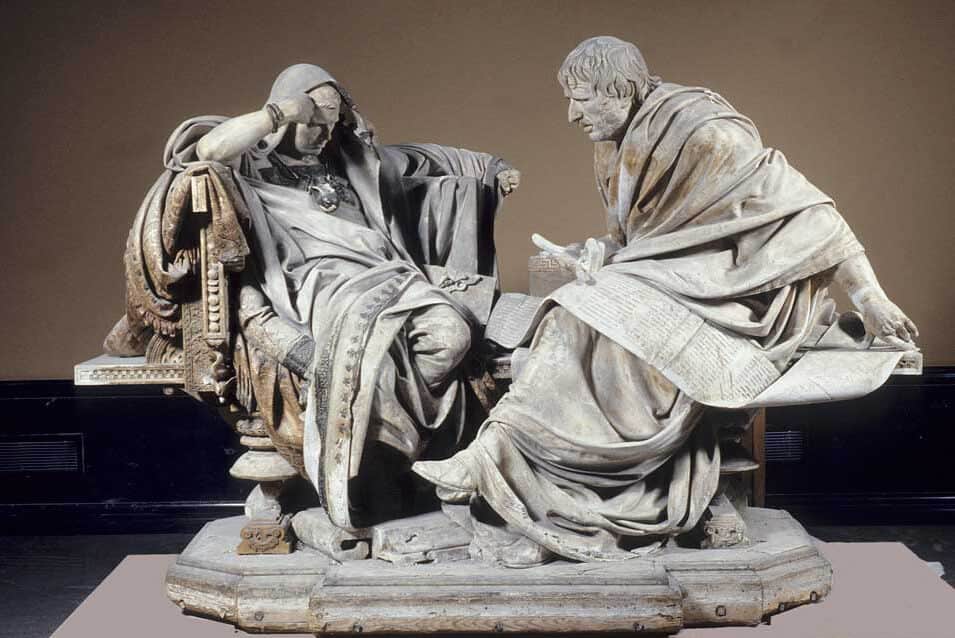
De brevitate vitae capitolo 1 Traduzione Studia Rapido
The short treatises De otio and De brevitate vitae balance each other by representing different but complementary aspects of Senecan philosophy: in De otio, one's duty to the 'active' life, in De brevitate vitae, one's duty to oneself in reclaiming life from the impositions made upon the self. The provocative Senecan message is to promote.

De brevitate vitae di Seneca temi ed insegnamenti principali
de Brevitate Vitae Textgroup: stoa0255 Author: Seneca, Lucius Annaeus ca. 4 B.C.-65 A.D Editor: Basore, John W. (John William) Translator: Basore, John W. (John William) Language: Latin Series: Loeb Classical Library Alt title: De Brevitate Vitae Host title: Moral essays, Vol 2 Publisher: Heinemann Place publ: London
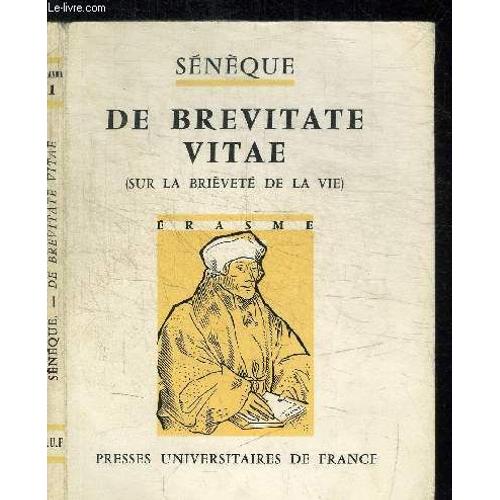
De Brevitate Vitae (Sur La Brievete De La Vie) / Collection Erasme N°1 Rakuten
Before we continue with the essay's key lessons, a bit of background: De Brevitate Vitae, as it is known in Latin, is in fact addressed to Paulinus. This is most likely Pompeius Paulinus, a knight of Arelate and historians date it around 49 AD.
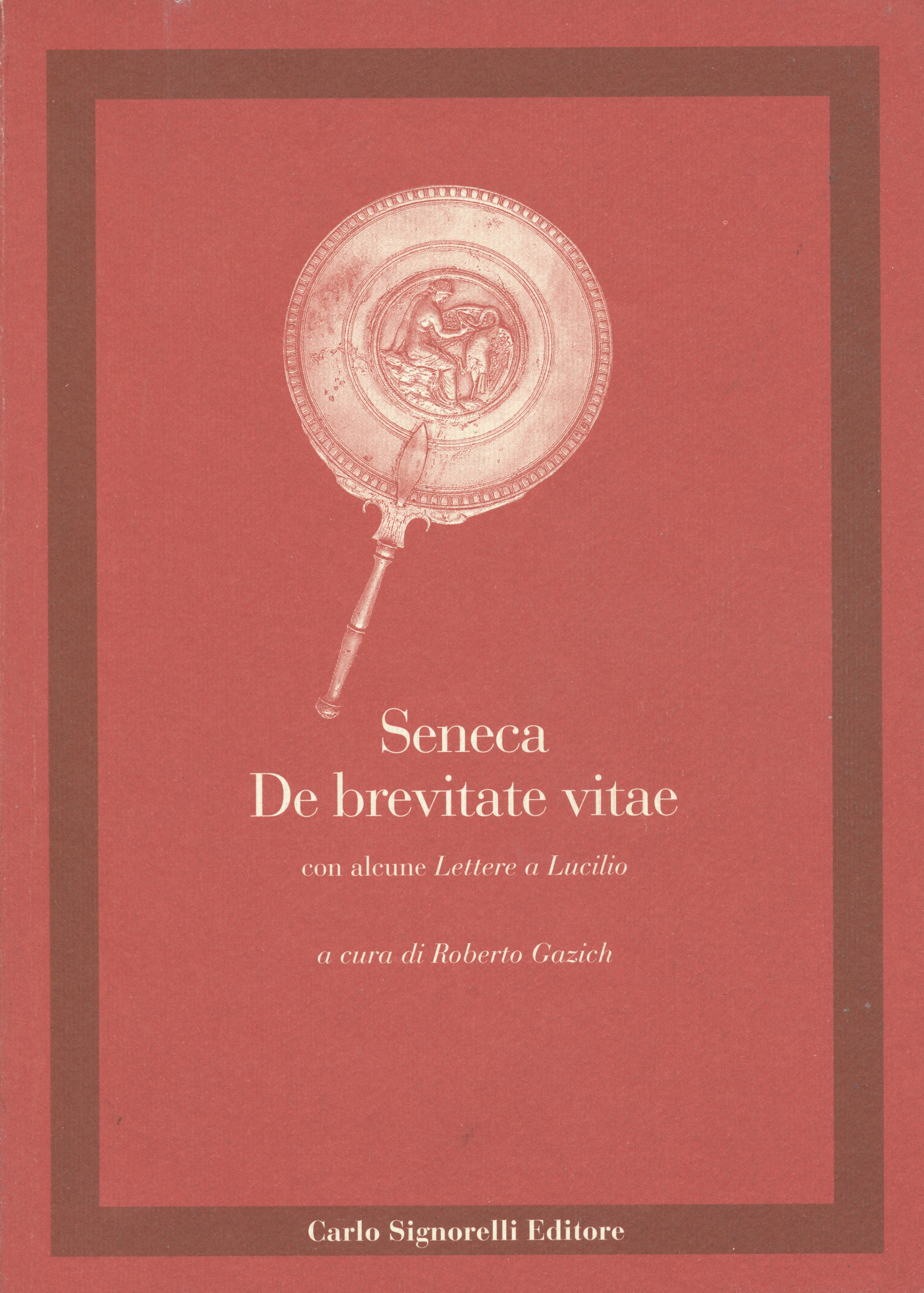
De brevitate vitae Seneca 1 recensioni Carlo Signorelli Editore Paperback Italiano
Caligula was dead when Seneca wrote De Brevitate Vitae. The phrase ' modo modo intra paucos illos dies quibus C. Caesar periit . . . i1 might suggest a date in the 40's. But, in a letter, lamenting the briefness of life, Seneca remarks on the distant events to which an old man's memory can apply modo: 'Et tamen hoc " modo " aetatis nostrae bona.